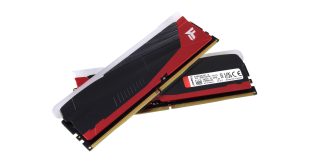IBM have announced a spectacular achievement yesterday, which could lead to the development of solid state chips which can store as much data as NAND flash technology but with 100 times the performance and greater longevity.
NAND flash memory has hit the market in recent years and current SSD's can have write speeds up to 2GBIT/Sec. IBM said in a press release that they have created phase change memory (PCM) chips which can store two bits of data per cell without data corruption issues, something that has caused problems for PCM since it was first announced.

PCM is nonvolatile, which means that it can retain data after the power supply is shut down. Unlike NAND flash however, PCM doesn't require that existing data be marked for deletion prior to new data being written to it. This process is known as an erase-write cycle. As many already know, this erase-write cycle slow NAND flash performance, especially over time, and it will also wear out. Industry reports indicate a lifespan of between 5,000 and 10,000 cycles within consumer products and up to 100,000 cycles in enterprise products. PCM improves on this significantly, with reports of up to 5 million cycles, according to IBM documentation.
Christopher Sciacca, a manager of the IBM Research facility in Zurich said “If you can write to flash 3,000 times, that will outlive most cell phones and MP3 players, but that's certainly not good enough for the enterprise that does that in an hour.” More information on this can be found at Computerworld.
Kitguru says: It will take some time before this hits the consumer market, but it may be a very important performance and reliability breakthrough.
 KitGuru KitGuru.net – Tech News | Hardware News | Hardware Reviews | IOS | Mobile | Gaming | Graphics Cards
KitGuru KitGuru.net – Tech News | Hardware News | Hardware Reviews | IOS | Mobile | Gaming | Graphics Cards



sounds like a wicked upgrade for the future.
Yet another proof that SSDs in current shape are road to nowhere. By the time they get really cheap and useful – space! – there will be vastly superior option on the market. Lets all hope that PCM is that option.